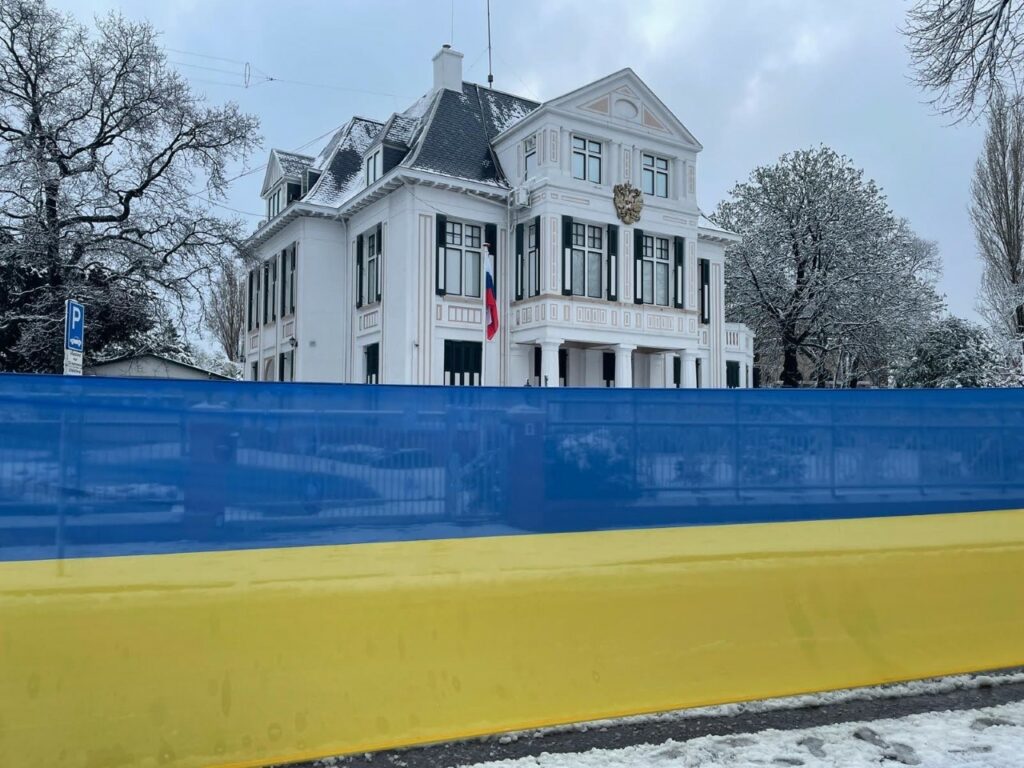A group of pro-peace activists have been protesting every day since Russia invaded Ukraine with a gigantic Ukrainian flag opposite the Russian embassy in The Hague.
It started spontaneously with people putting Ukrainian flags on the barriers in the street outside the embassy, located in a prestigious neighborhood in the Dutch capital close to the famous art museum in the city. After embassy staff removed the flags, the demonstrators decided to ask for police permission to hoist a 25 m wide flag between two trees across the embassy.
The flag is hoisted in the morning and taken down in the evening. The local authorities granted their permission on the condition that it would be continuously guarded during the day. For this, the demonstrators organized a Whatsapp group of about 140 volunteers who take one-hour shifts in guarding the flag.
Most of the volunteers live close by in the embassy quarter of The Hague but some come from far away for their weekly shift. A smaller group is responsible for hoisting and lowering the flag every day. The flag was made at a company producing sailcloth and can easily be transported in a shopping bag on a bicycle.
On the anniversary of Russia’s invasion on 24 February, a large demonstration took place outside the embassy, including Russian citizens who harshly criticized their home country and Kremlin for its unprovoked and illegal attack on a neighboring country.
“We are protesting to remind ourselves and the embassy about the terrible war which Russia started and must end,” Julius, one of the activists, told The Brussels Times. “Russia must withdraw its troops from Ukraine and recognize its independence and territorial integrity.”
“The Russian diplomats are visibly embarrassed by our daily protest,” he added. “We’ll continue our peaceful protest as long as it takes.”
The Hague is the seat of the International Criminal Court. As previously reported, a new International Centre for the Prosecution of the Crime of Aggression against Ukraine will be established in The Hague as a first step towards a special tribunal to investigate and prosecute Russia’s war crimes.
The Brussels Times

